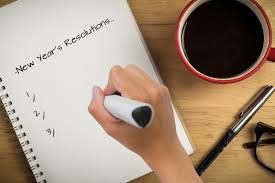The Secret to Achieving Your Business Resolution in the New Year: Fail
 A new year has begun, and those of us in the business world are busy laying out plans for world domination (or at least dominating our section of the market place). In doing so, we’re often encouraged to adopt a limitless mindset and to entertain some blue-sky thinking.
A new year has begun, and those of us in the business world are busy laying out plans for world domination (or at least dominating our section of the market place). In doing so, we’re often encouraged to adopt a limitless mindset and to entertain some blue-sky thinking.
What we seldom do at this time of the year is to plan for failure… and we really should.
Failure is one of those possibilities that we all acknowledge is a necessary gateway to success (at least academically), but despite this admission, we do all that we can to avoid it and to delude ourselves with a kind of superhero thinking: “Failure is something other people experience on their way to success!”
The problem is, by not having a strategy for failure, or for human frailties, when they do arise, we are ill prepared and often struggle to make rigid processes more adaptable and innovative.
Of course, planning for failure is more than just negative catastrophizing, it’s a critical part of risk mitigation. But more than that, it allows us to base our business success in the real world rather than in a textbook view of commercial enterprise.
Ask any small business person what are the critical issues they face in their day to day and your will typically hear one of two concerns – cash flow and people issues. In truth, these are the two constant pressures in businesses of any size.
However, while we often build strategies and hold insurance policies to hedge against cash flow issues, few of us have sufficiently planned for human failure in our strategic planning.
Recently, we attended a Waterworld performance at Universal Studios in Los Angeles and sat with the cast and crew after the show to ask how they prepared for such a dynamic and often times dangerous routine. What we learned was that the show that had seemed so seamless to us was in fact punctuated by mistake after mistake. However, unlike many businesses, they had multiple levels of contingencies build into the performance, optional scenarios they rehearse daily that they enlist should something not go quite as planned.
This kind of strategic thinking is critical to our success in business (and in life for that matter). But it goes beyond simply planning for failure and can actually help us create a bias towards our success.
We call this behavior design.
Rather than simply relying on our people understanding what we want and being highly competent in turning these instructions into action, we help organizations develop and adopt specifically designed behavior that allows their staff to deliver the results they need regardless of their motivation or engagement levels.
In fact, this kind of thinking is exactly what allows small businesses to become big businesses.
The less we rely on the performance capacities of individual staff members and build the value of the business through developing processes and intellectual property that can live beyond our time in the organization, the more we increase the market value of the business as a whole.
In other words, achieving success all starts with planning for failure.
Published by WILEY, Dan and Kieran’s new book Selfish, Scared & Stupid is available from in paperback RRP $22.95 from www.selfishscaredandstupid.com.
Kieran Flanagan: A behavioural researcher and strategist, author, educator and corporate coach, Kieran Flanagan is one of the only female Creative Directors in the world of MadMen and has won awards around the world for creativity and effectiveness. Kieran is a TEDx Sydney partner and speaks to audiences including the UN in Singapore and Coca-Cola. She is a passionate advocate for the commercial power of creativity and a return to more human engagement, cultures and leadership.
Dan Gregory: A behavioural researcher and strategist, as well as an author, educator, international speaker and social commentator, Dan Gregory specialises in behaviours and belief systems – what drives, motivates and influences us. One of the most respected voices in the industry, Dan is a regular on ABC’s Gruen Planet and has worked with some of the biggest brands in the world: Coca-Cola, Unilever, Vodafone, MTV and News Ltd.

 Delicious
Delicious Digg
Digg StumbleUpon
StumbleUpon Propeller
Propeller Reddit
Reddit Magnoliacom
Magnoliacom Newsvine
Newsvine
Comments
Post new comment